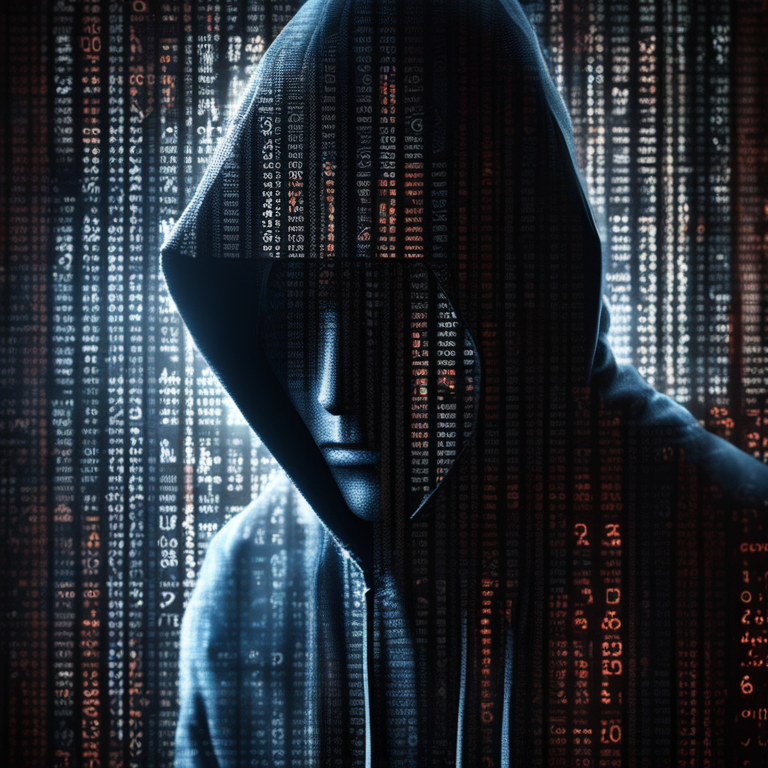Catching a Cyber Ghost: The Hunt for LockBit Ransomware's Mastermind
- byAdmin
- 07 May, 2024
- 20 Mins

Catching a Cyber Ghost: The Hunt for LockBit Ransomware's Mastermind
In a significant cybersecurity crackdown, the U.S. Department of Justice (DOJ) has thrown down the gauntlet, charging Dmitry Khoroshev, the alleged Russian leader behind the infamous LockBit ransomware gang. Accused of orchestrating a global extortion operation that netted an eye-watering $500 million in ransom payments, Khoroshev's digital fingerprints are now the target of a $10 million bounty for information leading to his capture. From recruiting cybercriminal "affiliates" to amassing a fortune in Bitcoin, this digital desperado's reign over one of the most prolific ransomware networks is facing a potential endgame. Buckle up as we decode the DOJ's latest cybersecurity saga, revealing the high stakes and digital drama of hunting down a cyber ghost.
The LockBit Saga: U.S. Clamps Down on Cybercrime's Puppet Master

In a dramatic turn of events that sounds like it's straight out of a cyber-thriller novel, the U.S. Department of Justice (DOJ) has laid down the law against one Dmitry Khoroshev. Painted as the mastermind behind the nefarious LockBit ransomware gang, Khoroshev, hailing from Russia, is now the star of a high-stakes global manhunt. The DOJ's narrative reveals a tale of digital blackmail and extortion on an epic scale, with a jaw-dropping $500 million in ransom payments linked back to Khoroshev's cyber-command. In an era where cryptocurrency is king, Khoroshev's alleged crypto coffers swelled by $100 million, showcasing the lucrative lure of cybercrime. But with a $10 million bounty on his head for information leading to his capture, it's clear the U.S. is playing for keeps. This story isn't just about catching a bad guy; it's a sobering spotlight on the shadowy corners of the internet where bits and bytes can hold the world to ransom.
"Catching Khoroshev won't be a walk in the cyber park," stated a DOJ spokesperson with a mix of gravitas and hope. Internationally known cybersecurity expert, Dr. Alexis Park, weighed in on the case, emphasizing the sophistication of the LockBit operation. "LockBit isn't just a piece of malware; it's a full-blown business model that's been meticulously crafted for maximum disruption," explained Park. She highlighted the audacity of recruiting "affiliates" for spreading the ransomware, a grim reflection of how organized and deep-rooted such networks have become. The chilling part? According to Park, "This takedown sends a potent message, but it's a drop in the digital ocean. The battle against cybercrime is marathon, not a sprint."
LockBit's saga isn't just overnight news. It burgeoned into a cyber scourge since its inception in 2019, fast becoming one of the globe's most prolific digital extortion tools. A chilling tally of its conquests includes around 2,500 victims, with over 70% based in the U.S., and a massive $500 million ransomware revenue stream. The DOJ's indictment of Khoroshev and five other cohorts signals a critical hit against this cyber behemoth. Yet, the backstory hints at a larger, more deeply entrenched cybercriminal ecosystem, thriving in the blind spots of international law and digital anonymity. With Khoroshev's operation partially dismantled but the kingpin still at large, the saga of LockBit represents a crucial chapter in the ongoing war against cybercrime.
Additional Information: A Dive into LockBit's Digital Dynasty
The LockBit ransomware empire, since its inception in 2019, morphed into an omnipresent cyber threat, with its tendrils spread across a global victim base. What makes LockBit's saga particularly gripping is its transformation into one of the most efficient digital extortion tools, managing to haunt around 2,500 entities worldwide. Surprisingly, a large chunk—over 70%—of these victims finds themselves in the U.S., showcasing a targeted attack strategy towards American enterprises. The gang's operational model was slick, offering ransomware-as-a-service (RaaS) to its 'affiliates' who would then carry out the dirty work. The profits, predominantly in Bitcoin to ensure anonymity and ease of transfer, highlight an unnerving trend of cybercriminals amassing fortunes in cryptocurrencies. With over $500 million in ransoms and a personal take of $100 million in Bitcoin for Khoroshev, the financial firepower behind LockBit is undeniably formidable.
Conclusion: What Does the Future Hold for Cybercrime Wars?
In the shadowy world where bytes and blockchain reign supreme, the indictment of Dmitry Khoroshev marks a significant battle in the enduring war against ransomware gangs. However, this charge against LockBit's alleged kingpin is but a single step on a much longer journey towards cybersecurity. While the DOJ's aggressive stance and the hefty $10 million bounty on Khoroshev hint at a future where cybercriminals can't hide in the digital smoke and mirrors, experts caution that new adversaries are always waiting in the wings. The real victory, it seems, lies in fortifying digital defenses and cultivating a global culture of cyber awareness. As the chase for Khoroshev continues, one thing is clear: in the ever-evolving cybercrime saga, complacency is the enemy, and vigilance is the beacon of hope. The endpoint? A future where digital realms are no longer playgrounds for phantom threats but sanctuaries of secure, unassailable connectivity.
Ethan Taylor
Ethan Taylor here, your trusted Financial Analyst at NexTokenNews. With over a decade of experience in the financial markets and a keen focus on cryptocurrency, I'm here to bring clarity to the complex dynamics of crypto investments.



